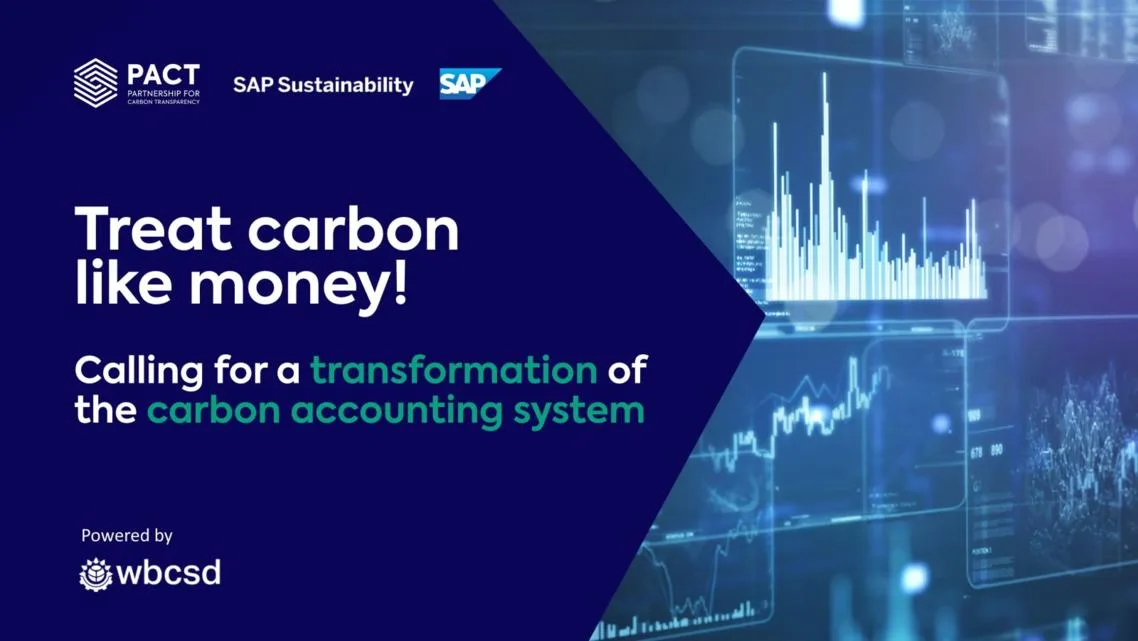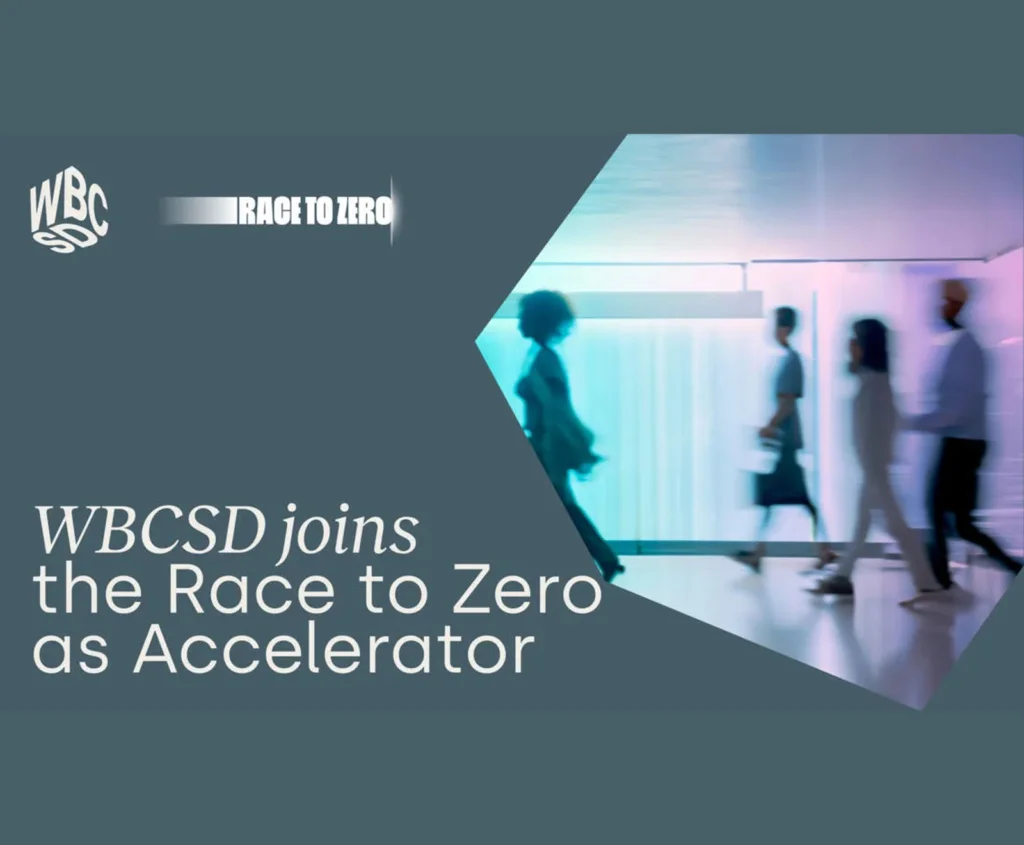Authors
White Paper
Calling for a transformation of the carbon accounting system – What is needed and how companies can help achieve it
Credible emissions data is key for companies to take targeted decarbonization action across their supply chains and measure progress over time. This requires a carbon accounting system which enables access to accurate, granular and comparable data. Companies and consumers need to be able to understand the real impact of their products to reduce this as they cannot manage what they cannot measure. To achieve this, and mirroring the financial accounting approach, data needs to be passed along the value chain from one company to the next, tied to specific products and services in the form of a carbon invoice.
Work is already underway in the Partnership for Carbon Transparency to create such a system, focused on collaboration around calculation methodologies and a standardized technology infrastructure. In the meantime, companies can also start on this journey by putting in place a credible Scope 3 strategy and investigating their major emissions sources in more detail as part of their corporate footprint calculations, applying a hybrid approach which combines average data with primary data.
Carbon accounting, especially Scope 3, is a challenge, but one that can be solved – together.
Introduction
Sustainable companies have set ambitious climate targets covering their own operations as well as their supply chains. Now, actions need to measure up to commitments. Businesses must be able to record, report and act on reliable and accessible emissions data to drive corporate climate action, particularly in the supply chain. Such data is key to (i) setting accurate net zero targets, (ii) identifying specific intervention areas in the value chain with maximum (decarbonization) impact, and (iii) accurately tracking performance of emission reduction initiatives against established targets
HOW companies can start shifting the dial
While the necessary system is being put in place to enable companies to access such data, in the near-term, companies should
- Identify: Identify the largest sources of emissions at either purchased product or supplier level based on an initial top-down Scope 3 calculation.
- Collect: Request suppliers representing the most significant emissions to calculate and provide relevant product carbon footprints (PCFs) following the Pathfinder Framework requirements.
- Collaborate: Work with suppliers to identify and implement opportunities to reduce their PCF emissions, ultimately favoring suppliers with lower PCFs for equivalent products.
- Expand: Gradually incorporate additional products and suppliers into the PCF data exchange request.
- Improve: Continuously improve on carbon data quality, granularity and accessibility and adjust the approach if necessary.
In taking these steps, sustainable companies already today benefit from a competitive differentiation of their products and services. This can be observed in consumer-facing industries like food & beverage as well as in heavy-emitting industries like cement and steel, where companies are racing to provide materials with the lowest carbon footprint. Furthermore, these businesses are best prepared for future carbon pricing or carbon taxes. The EU is actively debating such approaches and already introduced the Carbon Border Adjustment Mechanism (CBAM), which comes into force in October 2023 and puts an import tariff on carbon-intensive products based on their actual carbon footprint.
Collaboration and transparency are at the heart of this and will support standardization bodies in quickly updating and developing the necessary standards. Carbon accounting, especially Scope 3, is a challenge, but one that can be solved – together.
If you wish to read the full White Paper, please check this link.
ABOUT PACT
The Partnership for Carbon Transparency (PACT) is the solution to one of the biggest decarbonization challenges today: Scope 3 emissions. By ensuring every company has access to granular, comparable and consistent data from its suppliers, PACT enables companies to take targeted action on their value chain emissions and to create accountability on reduction progress. PACT provides a forum for stakeholders to jointly tackle the Scope 3 challenge, uniting businesses from across industries, technology players, industry-focused initiatives, standard-setting bodies, reporting organizations, and regulators in their shared mission. Jointly, the PACT community defines and publishes the necessary methodological and technological basis for emissions data exchange, integrating existing standards and approaches and creating a trusted and holistic foundation.
PACT is hosted by WBCSD and supported by its knowledge partner, McKinsey Sustainability, as well as its technology partner, SINE Foundation.
Find out more at www.carbon-transparency.com.
ABOUT SAP
SAP’s strategy is to help every business run as an intelligent, sustainable enterprise. As a market leader in enterprise application software, we help companies of all sizes and in all industries run at their best: SAP customers generate 87% of total global commerce. Our machine learning, Internet of Things (IoT), and advanced analytics technologies help turn customers’ businesses into intelligent enterprises. SAP helps give people and organizations deep business insight and fosters collaboration that helps them stay ahead of their competition. We simplify technology for companies so they can consume our software the way they want – without disruption. Our end-to-end suite of applications and services enables business and public customers across 25 industries globally to operate profitably, adapt continuously, and make a difference. With a global network of customers, partners, employees, and thought leaders, SAP helps the world run better and improve people’s lives. For more information, visit www.sap.com.
Follow us on LinkedIn and Twitter
Authors of the White Paper
- Anna Stanley-Radière, Director, Climate Transparency, and Member of the Extended Leadership Group, WBCSD
- Cecilia Valeri, Manager, Climate Transparency, WBCSD
- Sebastian Steinhaeuser, Chief Strategy Officer, SAP
- Jonas Dennler, Chief Marketing and Solutions Officer for Sustainability, SAP
WBCSD news articles and insights may be republished in accordance with the Creative Commons Attribution-NonCommercial-NoDerivatives 4.0 International Public License, and in accordance with our Privacy Policy. All Content must be featured with due credits.
Outline



